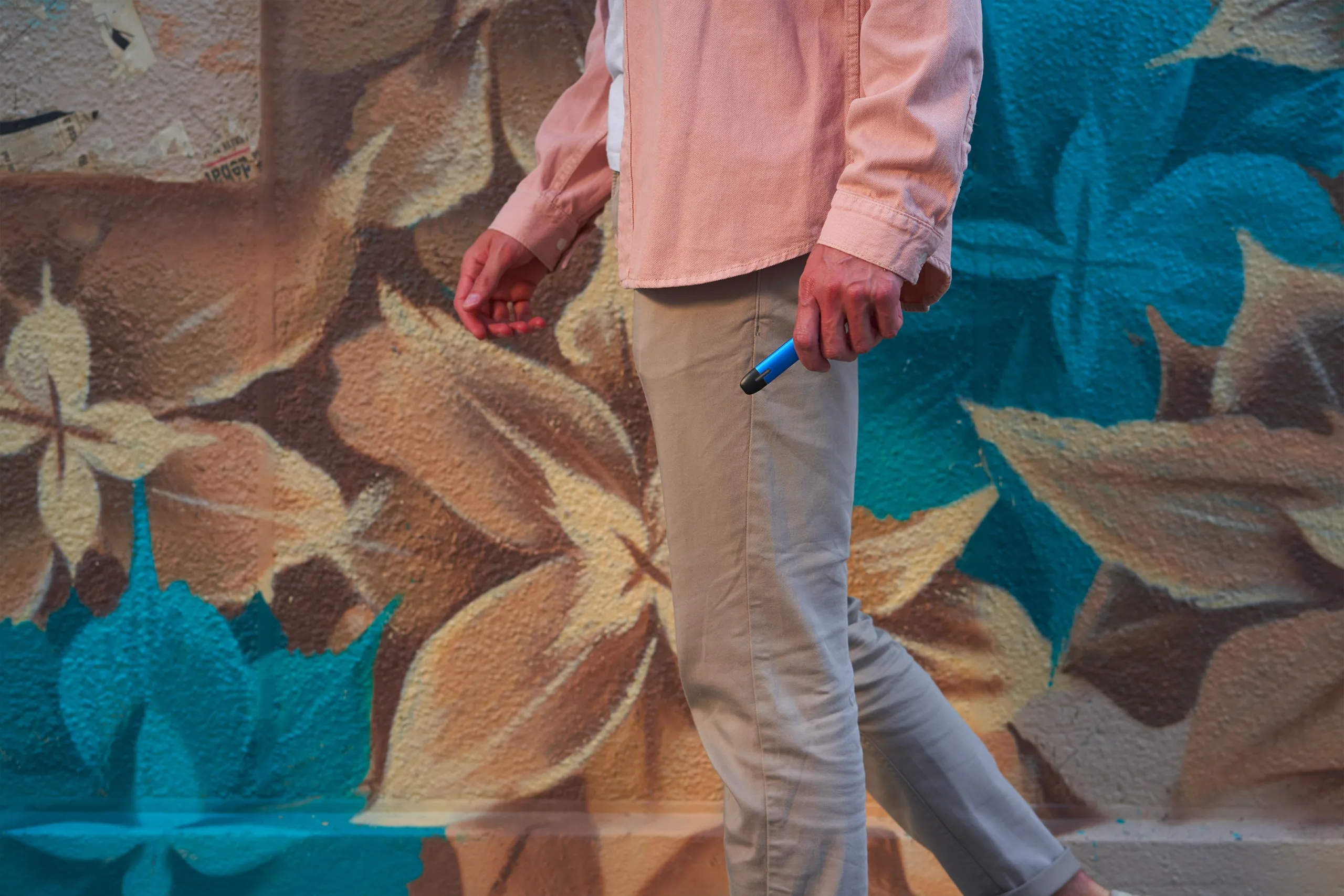“My first action upon waking up”: a tough campaign that targets youth vaping

Student Joy, 19, acknowledges that vaping is the first thing she does when she wakes up.
This is true even though the Queenslander has been physically ill since she was 17 years old, the first time she smoked a disposable vaporizer.
It did not, however, deter her.
Like many of her pals, she kept using the often vibrantly coloured vapes, which cost about $35 each.
Joy developed an addiction fast and even turned into a “nic sick” person.
This indicates that she had acute nicotine poisoning, which results in nausea and vomiting.
Despite the fact that flavor-infused disposable e-cigarettes that are widely available online and in stores are not meant to contain nicotine, research has demonstrated that many of them do.Over half a million youth use vape devices.Joy is currently a part of a strong campaign in which young people themselves urge children, teenagers, and young adults to abstain from vaping and provide support in quitting.
It is being implemented by the Minderoo Foundation, a nonprofit organisation founded by businessman Andrew “Twiggy” Forrest, and is dubbed UNCLOUD.
It consists of advertisements and a website for popular youth websites including TikTok, Instagram, and Snapchat.
Additionally, posters will be displayed all around Australia, some of which include sombre pictures of youth hospitalised due to vaping.
Research studies, such as Generation Vape and the Minderoo Foundation’s Vaping Among Young Australians study, support the promotion.
According to the study, 3 out of 10 Australians between the ages of 14 and 25 had vaped during the previous 30 days, and over 500,000 of them do so every day.
That is even though the maximum age is eighteen.
Although the long-term effects of vaping are still unknown, young people who vape have a three times higher chance of starting to use cigarettes.
Data from earlier this year indicated that, for the first time in 20 years, teen smoking was rising.
In Australia, smoking continues to be the primary preventable cause of death and disease.
Joy claimed that she probably would not have started vaping if she had had access to such services.
“I would search ‘what’s in vapes, what’s the risk’… everything just linked back to cigarettes,” she stated.
“Making an informed decision would have prevented me from buying my own vape.”
Joy has successfully stopped vaping after realising that she needed to quit for her health.
The “heartbreaking” truth about the habits of young peopleProfessor Claire Wakefield, a psychologist and the director of the Minderoo Foundation’s Cancer Mission, stated that although the organisation supports legislative changes that include a ban, their goal is to give youth the authority to refuse vaping on their own.
They are already aware of the fundamentals, such as the notion that vapes are made of chemicals and contain nicotine.Changing conduct is not always possible with knowledge alone.
They are interested in the experiences of other youth who deal with similar issues.
Wakefield added that some of the accounts of the children who participated in the study, even those who were still in school, really touched her.
“Can you imagine sitting in class and going through nicotine withdrawal?” she asked.
“That just broke my heart.”
“Your feelings have changed from before.”
Aderline, a 24-year-old food and beverage worker from Melbourne, is also advising people against starting vaping.
In three years, she estimates she has spent $3000 on vapes and developed an addiction.
“The past year I don’t even think I’ve been enjoying it,” she stated.
She experiences digestive problems and wakes up with what she calls “a whole lot of phlegm” in her throat.
“You don’t feel the same as you did before,” she stated.
She has managed to reduce her habit so far, from up to 150 puffs a day to just 30.
Imminent crackdown
Mark Butler, the federal minister of health, expressed his expectation that the additional restrictions announced in May, including a ban on vapes, will be in effect by the end of the year.
Recreational vaping will be prohibited as part of the crackdown, along with the importing of non-pharmaceutical vapes being prohibited and stringent product flavour and packaging regulations.
Retailers will not be allowed to sell vapes.
This comes despite numerous recent nationwide seizures of illicit e-cigarettes.For individuals found selling these vapes during the raid, new sanctions have not yet been established.
In Australia, vaping with nicotine is legal, but only with a prescription.Governments all around the nation, according to Butler, are “determined to stamp this out.”
“Vaping was never intended to be a recreational product,” Butler stated.
“It was always sold as a therapeutic product for hardened smokers – not a recreational product that would get our kids hooked to nicotine.”
Should you be encountering any of the difficulties outlined in this article, please reach out to us, and our team will try to help in any way possible.

